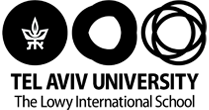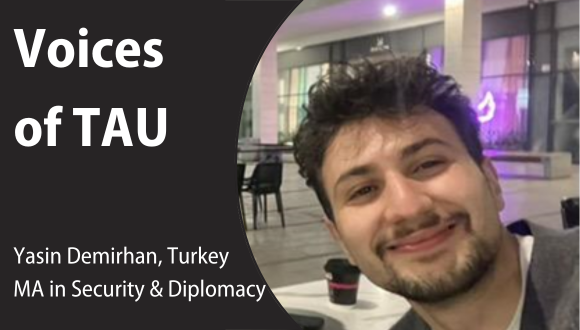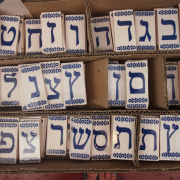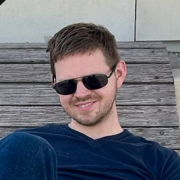Life at Tel Aviv University, One Question at a Time
Shabbat dinners, beach sunsets, Hebrew slang, new friends, and more snapshots from an international graduate student at TAU
Security & Diplomacy MA
Duration: 3 semesters in Tel Aviv
Tuition: $16,900
Study strategy, diplomacy, and decision-making
Engage with high-ranking decision-makers
Gain extensive knowledge and analytical tools
Studying abroad is built on everyday moments that slowly become lasting memories. In this quick Q&A, Yasin Demirhan from Turkey looks back on his MA in Security and Diplomacy, sharing his campus rituals, Tel Aviv routines, and little discoveries that made his experience feel like home.
What Local Words Have You Picked Up That You Use All the Time Now?
Rega, yalla, and shniya somehow fit every situation, from class discussions to the bus. At first I only used them jokingly, but soon they became natural parts of my daily routine.
- “Rega” worked when I needed a pause in class debates or while juggling group projects.
- “Yalla” was the perfect way to motivate myself and others, whether to start a run, wrap up an assignment, or just leave the dorm on time.
- “Shniya” slipped in whenever I needed to buy a moment, from holding off a professor’s question to telling a friend I would be ready soon.
Using these words made me feel less like a visitor and more like someone inside the rhythm of Tel Aviv life, since they carried the casual tone that locals use all the time.
What Unexpected Skill Have You Gained During Your Time at Tel Aviv University?
Stakeholder mapping and “veto players” thinking help me quickly map who really has a veto, who has a voice, and what incentives move each actor. It changed how I plan projects and negotiate day to day, not just in simulations.
At first it felt like a purely academic framework, but once I started applying it, I saw how practical it is.
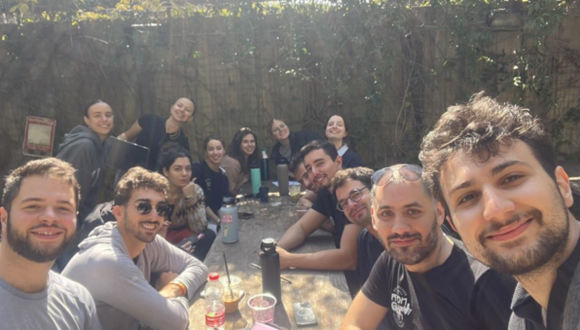
Yasin Demirhan (on the right) with his classmates during one of field trips
For example, when working on group assignments, I began spotting the “hidden veto,” the quiet classmate whose disagreement could stall everything unless addressed. In internships I used the same approach to figure out which managers actually had the power to move things forward.
It became less about convincing everyone equally, and more about understanding leverage and sequencing influence.
This skill now shapes how I approach both academic and professional challenges, because I see every process as a map of incentives and constraints.
What Class Project Changed How You Think?
Our multilateral crisis simulation showed me how process and timing can matter as much as substance in diplomacy, and how small wording choices shift outcomes.
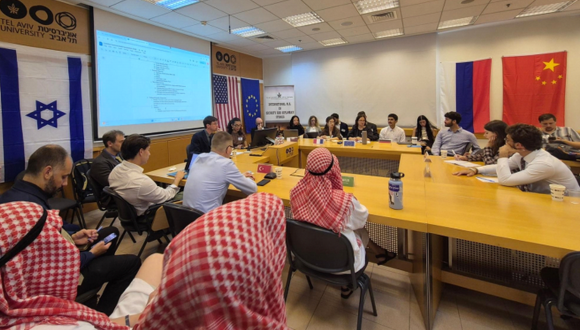
Negotiating in a multilateral crisis
What surprised me most was how quickly alliances formed and dissolved over single phrases, or even over when a proposal was introduced.
I realized that being technically “right” does not always matter if you misjudge the rhythm of the room.
That project trained me to read atmospheres, anticipate reactions, and think about negotiations not only as the content of the deal but also as choreography. Since then I often pay attention to timing, sequencing, and tone, even outside class, in academic teamwork, internships, or business meetings.
What is the most surprising conversation you’ve had on campus?
I stopped underestimating how much pop culture builds bridges. A coffee-line chat turned into 30 minutes of Turkish.
I met many Israelis who learned Turkish just from TV series.
The crazy part is I was the first Turkish person they had ever met, and they spoke and understood Turkish perfectly. It was crazy to see how talented people can be.
What Habit Helped You Feel at Home at TAU?
Iced americano at Aroma by Broshim and an evening run to Tel Baruch. Those became anchors in my routine, small rituals that made even busy weeks feel balanced.
The coffee stop was not just about caffeine, it was also a chance to see familiar faces, exchange a few words, and feel part of the campus rhythm. The evening run, on the other hand, gave me space to clear my head, watch the sea, and remind myself why I chose Tel Aviv in the first place.
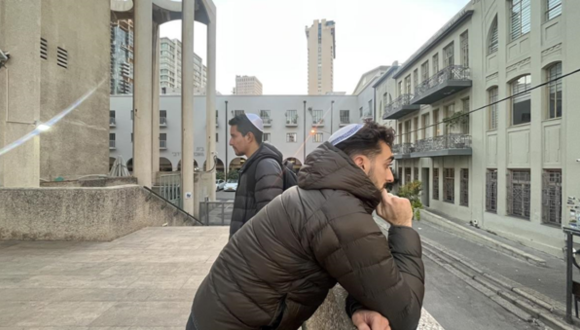
Also, as a Turkish person I never felt like I was not at home here. When I told my teacher this, he said I was the fourth Turkish student to tell him the same. I guess there are some vibes and patterns that are similar, and these habits only strengthened that sense of belonging.
Mornings were lectures or seminars, afternoons were teamwork or internships, evenings were workouts, beach, or events on campus. The pace kept me sharp, and there was always something happening, from a guest lecture by a visiting diplomat to a spontaneous trip to the sea with classmates.
Even when the workload was heavy, the variety made it feel meaningful rather than overwhelming.
Living in Tel Aviv meant that learning did not stop in the classroom, because the city itself was a constant extension of the program, full of conversations, culture, and daily lessons.
Why Did You Choose TAU's Security and Diplomacy MA?
I wanted security studies with real access to practitioners, and Tel Aviv is the best place to do that. The program’s mix of theory, simulations, and guest speakers felt very practical. It was important to me that I could test ideas not only in readings but also in direct exchanges with people who had shaped policy or worked in the field.
The balance between academic depth and hands-on exposure convinced me that this was the right program.
Policy briefings in Jerusalem and visits connected coursework to real institutions.
Also, for me the best trip was our visit to Kfar Qasem where we met Issawi Frej. He is an Arab Muslim Israeli politician from Kafr Qasim, a longtime Meretz MK, and he served as Minister of Regional Cooperation in 2021–2022.
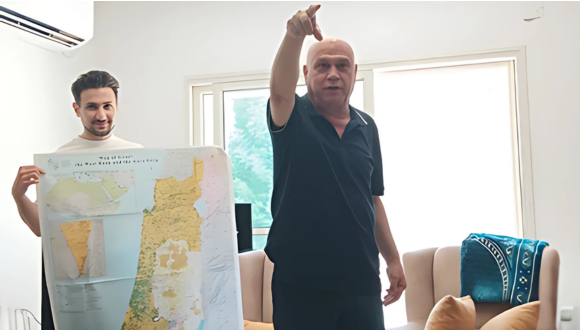
Yasin Demerhan with Issawi Frej, Israeli politician from Kafr Qasim
Hearing Israel’s history and politics through his perspective was incredibly educational.
The workload on the program is steady: readings, short memos, group projects, and simulations. It was designed to keep us constantly engaged without being overwhelming, so that theory and practice always stayed connected.
The rhythm of assignments meant I was always preparing for the next step, whether it was a policy memo, a class debate, or a simulation that forced us to act under pressure.
My favorites:
⦁ Israel’s Strategic Doctrine
This course gave me a clear framework to analyze choices in security policy, showing how historical experience, military realities, and political debates combine to shape doctrine. It helped me see patterns in decision-making that I had not noticed before.
⦁ Intelligence and National Security
This class sharpened my analytic tradecraft and writing. It was not only about learning intelligence history, but also about practicing structured analysis, recognizing biases, and presenting findings concisely, skills that I found useful even outside academic settings.
⦁ Crisis Simulation Workshop
Here I learned what it means to negotiate under time pressure and how to brief decision-makers effectively.
The intensity of the workshop, with shifting alliances and limited time, mirrored real diplomatic environments and forced me to think strategically about both substance and process.
What Was Your Favorite Place on Campus?
Sourasky Central Library for deep work, the lawns near Broshim to decompress, and Cafe Neto for the vibe. It has great coffee and chill energy. I met a lot of people there from political studies, so it became a good spot to enjoy and connect.
What Memories of TAU, Tel Aviv, and Israel Are You Leaving with?
Shabbat dinners that turned into long conversations, beach sunsets after tough weeks, Hebrew slang stuck in my head, and classmates who became close friends. Those are the snapshots, but behind them there is a bigger feeling. The Shabbat dinners taught me how hospitality can open real dialogue, even between people from very different backgrounds.
The beach walks after intense days reminded me that Tel Aviv has its own rhythm of work and rest, where the city never really slows down but always offers space to breathe.
Picking up Hebrew slang was more than a language lesson, it made me feel like part of daily life rather than just a visitor.
And the classmates who became close friends are the most important memory of all, because they turned academic stress into shared growth and created bonds I know will last beyond the program.
